
Ichi the Killer is a 2001 Japanese horror yakuza film directed by Takashi Miike, written by Sakichi Sato, and starring Tadanobu Asano and Nao Omori. Based on Hideo Yamamoto's manga series of the same name, its plot follows a psychologically damaged man who is manipulated into assaulting or killing rival faction members of feuding yakuza gangs while being pursued by a sadomasochistic enforcer.

Dear Brother is a Japanese manga series by Riyoko Ikeda. It was adapted into an anime series that aired on the channel NHK-BS2 from July 14, 1991 to May 31, 1992.

A Taxing Woman is a 1987 Japanese film written and directed by Juzo Itami. It won numerous awards, including six major Japanese Academy awards. The title character of the film, played by Nobuko Miyamoto, is a tax investigator for the Japanese National Tax Agency who employs various techniques to catch tax evaders.

Dead or Alive, abbreviated as DOA, is a 1999 Japanese yakuza action film directed by Takashi Miike. It stars Riki Takeuchi as the gang boss and former yakuza Ryūichi and Show Aikawa as the Japanese cop Detective Jojima and focuses on their meeting and conflict. It is the first in a loosely-connected three-part series, followed by Dead or Alive 2: Birds in 2000 and Dead or Alive: Final in 2002.

Gozu is a 2003 Japanese horror film.

Zebraman is a 2004 Japanese tokusatsu action comedy superhero film directed by Takashi Miike, written by Kankurō Kudō and stars Shō Aikawa as the main character, a superhero named "Zebraman".
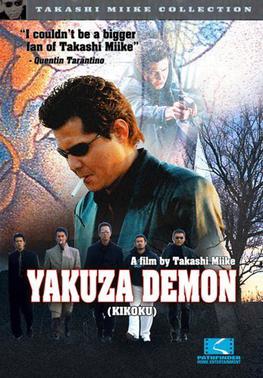
Kikoku is a Japanese yakuza film directed by Takashi Miike. The film reunites Miike with Riki Takeuchi, who stars as the main character.

Fudoh: The New Generation is a 1996 Japanese movie directed by Takashi Miike. It is based on an unfinished manga series by Hitoshi Tanimura. Two sequels followed, neither of which were directed by Miike.
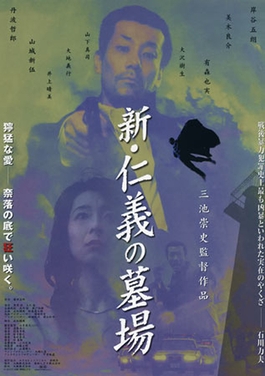
Graveyard of Honor is a yakuza film directed by Takashi Miike. It is a remake of Kinji Fukasaku's 1975 film of the same name, which is based on the life of a real-life Yakuza member.

The Geisha House is a 1998 film directed by Kinji Fukasaku.

The Man in White is a 2003 Japanese yakuza film directed by Takashi Miike.
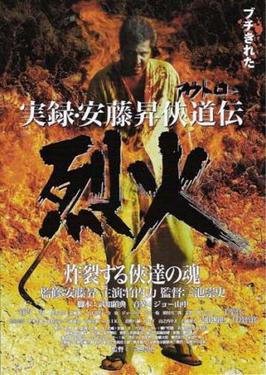
Deadly Outlaw: Rekka, also known as Violent Fire, is a 2002 Japanese yakuza film directed by Takashi Miike starring Riki Takeuchi and Sonny Chiba. Known in Japan as Jitsuroku: Andō Noboru Kyōdō-den - Rekka, it is loosely based on actor Noboru Ando's former life as a yakuza.
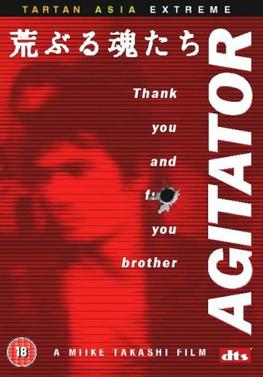
Agitator is a 2001 Yakuza film directed by Takashi Miike.
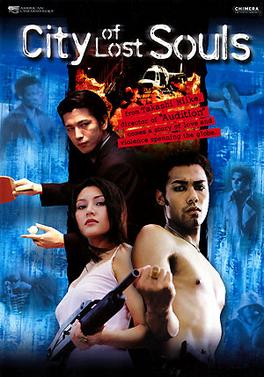
The City of Lost Souls is a 2000 Japanese action film directed by Takashi Miike based on a novel by Hase Seishu.

Hokuriku Proxy War is a 1977 film directed by Kinji Fukasaku and starring Sonny Chiba and Hiroki Matsukata.
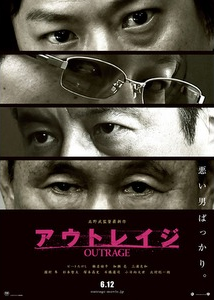
Outrage is a 2010 Japanese yakuza film written, directed, co-edited and starring Takeshi Kitano. It competed for the Palme d'Or at the 2010 Cannes Film Festival. It is followed by Beyond Outrage (2012) and Outrage Coda (2017).
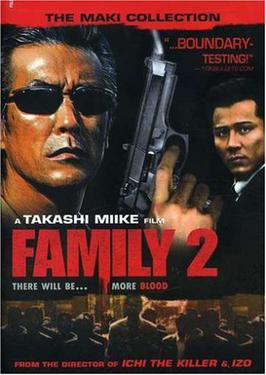
Family 2 is a 2001 Japanese yakuza film directed by Takashi Miike, released on home video as the sequel to his earlier film Family.
Doctor-X: Surgeon Michiko Daimon (ドクターX〜外科医・大門未知子〜) is a Japanese medical drama that premiered in October 2012 on TV Asahi. It stars Japanese actress Ryōko Yonekura.

Bodigaado Kiba: Hissatsu sankaku tobi, also known as Bodyguard Kiba 2, is a 1973 Japanese martial arts film starring Sonny Chiba. It is the sequel to the earlier 1973 film Bodyguard Kiba based on an action manga by Ikki Kajiwara. Etsuko Shihomi makes her screen acting debut, replacing actress Yayoi Watanabe in the role of Naoto Kiba's sister Maki. Shihomi had previously worked as a stunt double for Watanabe in the earlier film Bodyguard Kiba. The movie is also considered a break-through for Masashi Ishibashi, who would be asked by Sonny Chiba to play a major role in the 1974 movie, The Street Fighter.
The Japan men's national artistic gymnastics team is a sport group governed by Japan Gymnastics Association and represents Japan in international gymnastics competitions and multi-sports events. Followed the establishment of All Japan Gymnastics Federation in 1930, the team first appeared at the 1932 Summer Olympics and gradually became the major force till this day. For nearly two decades, from 1960 to 1978, Japanese men was dominant and won every gold medal at the Olympics and World Championships.


















